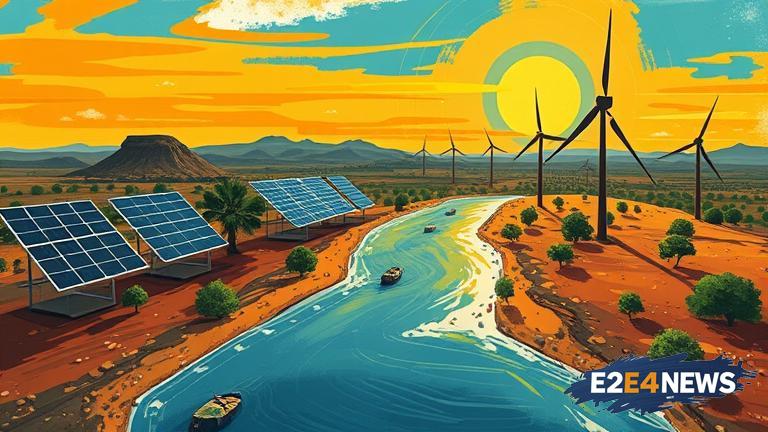The African continent is witnessing a significant shift towards renewable energy, driven by the need to address the pressing issues of energy access, climate change, and sustainable development. With many countries still struggling to provide reliable and affordable electricity to their citizens, renewable energy has emerged as a viable solution. Solar and wind power are becoming increasingly popular, with countries like South Africa, Egypt, and Morocco leading the charge. The cost of renewable energy technologies has decreased dramatically over the years, making them more competitive with fossil fuels. This has led to a surge in investment in the sector, with many international companies and organizations committing to support Africa’s renewable energy ambitions. The African Union’s Agenda 2063 has set a target of ensuring that at least 50% of the continent’s energy mix comes from renewable sources by 2030. To achieve this goal, countries are implementing policies and regulations to support the development of renewable energy projects. For instance, South Africa has introduced a renewable energy independent power producer procurement program, which has attracted significant investment and led to the development of several large-scale solar and wind farms. Similarly, Egypt has launched a feed-in tariff program to encourage the development of renewable energy projects, particularly in the solar and wind sectors. Morocco, on the other hand, has set a target of generating 52% of its electricity from renewable sources by 2030 and is investing heavily in solar and wind energy. The benefits of renewable energy are numerous, including reduced greenhouse gas emissions, improved air quality, and enhanced energy security. Moreover, renewable energy can create jobs and stimulate local economies, contributing to sustainable development and poverty reduction. However, despite the progress made, there are still significant challenges to be addressed, including the lack of infrastructure, limited access to financing, and inadequate policy frameworks. To overcome these challenges, international cooperation and support are essential, and many organizations, including the African Development Bank and the International Renewable Energy Agency, are working to support Africa’s renewable energy transition. The private sector also has a critical role to play, and many companies are already investing in renewable energy projects across the continent. As the demand for energy continues to grow, it is likely that renewable energy will play an increasingly important role in Africa’s energy mix. With the right policies and investments in place, the continent can unlock its vast renewable energy potential and achieve a sustainable and prosperous future. The use of renewable energy can also help to reduce the continent’s reliance on imported fossil fuels, improving energy security and reducing the impact of price volatility. Furthermore, renewable energy can help to promote economic development and reduce poverty, by providing access to reliable and affordable energy for businesses and households. In addition, the development of renewable energy can help to create new job opportunities and stimulate local economies, contributing to sustainable development and poverty reduction. The African continent has the potential to become a leader in the global renewable energy market, and with the right support and investment, it can achieve its ambitious targets and create a sustainable and prosperous future for its citizens.
